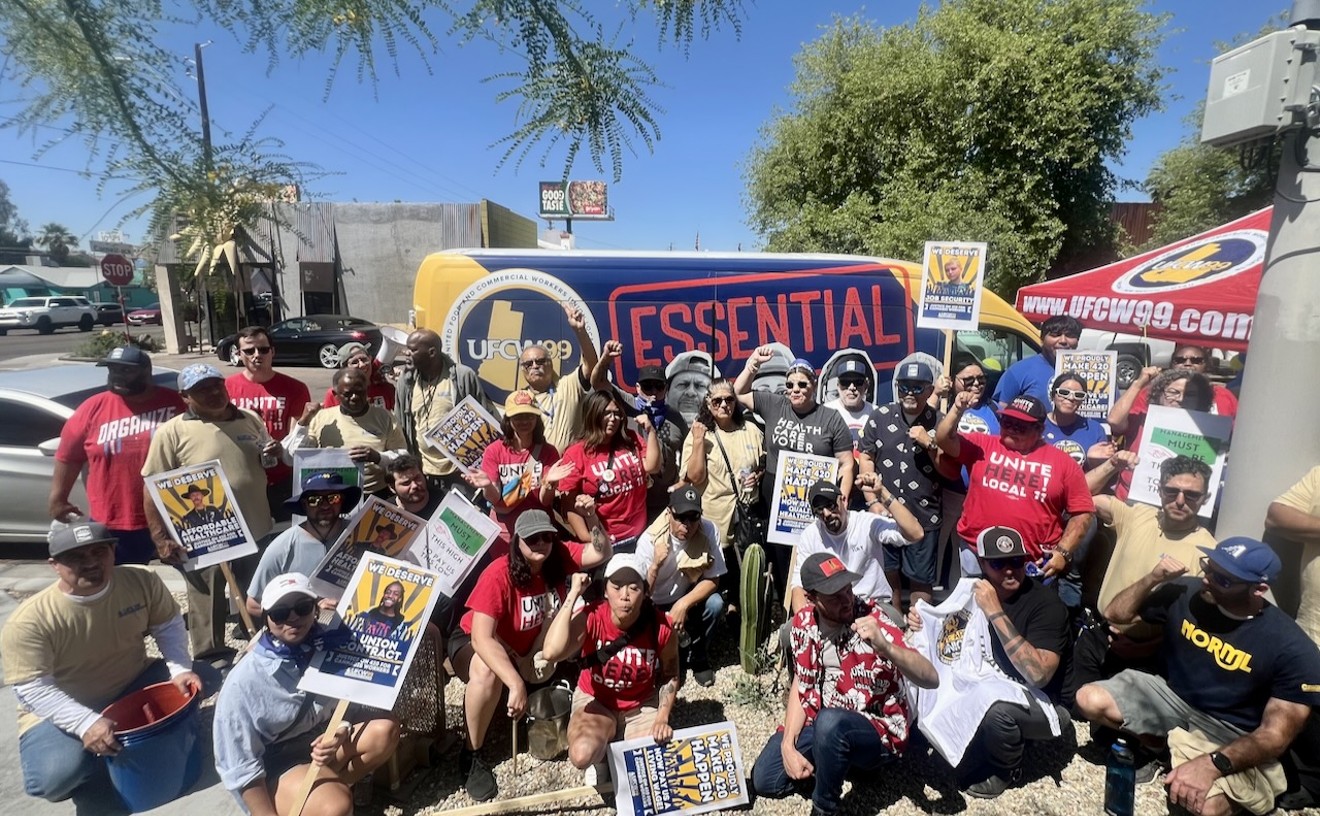Governor Doug Ducey vetoed a bill on Wednesday that would have allowed minimally trained volunteers to determine whether archaeological sites are present on state land.
Backed by lobbyists from the Arizona Cattlemen's Association, House Bill 2498 was intended to make it easier for ranchers to drill wells, add fences, and make other changes on public land that they lease from the state.
But professional archaeologists and representatives from several Native American tribes objected to language in the bill that would have allowed people who have taken a 40-hour class to determine whether any important archaeological sites or priceless historic artifacts were located on the property.
Doing so would put Arizona's history at risk, the tribes and archaeologists had warned. Without years of experience in the field, amateurs could easily end up overlooking subtle clues in the landscape.
Ducey's veto letter didn't cite those concerns, however. Instead, he singled out Arizona's ranchers for praise, calling them "the most capable and responsible business people that we have in the state" and crediting them for their stewardship of the land.
"I strongly agree with the goal of reducing regulatory burdens and correcting wasteful activities — especially if it will bolster our state economy," he wrote.
Then, he pointed out something that opponents of the bill had brought up repeatedly during legislative testimony: His administration has already taken steps to streamline the process that ranchers have to go through when they want to make changes on state land.
Back in October 2017, the state historic preservation officer and Arizona State Land Department, both of which fall under the purview of the governor's office, entered into what was described as a landmark agreement with the U.S. Department of Agriculture's Natural Resources Conservation Service.
"I spent better part of my time there working on this agreement, going out and talking to ranchers across the state," Matthew Behrend, a former lead archaeologist for the Arizona State Land Department, told Phoenix New Times back in April. "We arrived at a reasonable agreement that nobody loved and everybody accepted, which is compromise."
Behrend acknowledged that there's probably still room to improve the bureaucratic process, and Ducey indicated in his veto letter that he intends to do so.
Dave Hart, the president of the Arizona Archaeological Council, said the group is happy Ducey vetoed the bill. Members plan to work with the bill's sponsor, Representative David Cook, and Arizona ranchers to figure out other ways of speeding up the compliance process, he said.
"HB 2498 was very one-sided and essentially missed the point," Hart said. "Hopefully, by working together as we move forward, we can come up with better solutions that are amenable to all stakeholders."
The bill was one of just 23 that Ducey rejected during this legislative session. Also on the veto list was a proposal to let Arizona residents pay their income tax with bitcoin, and a bill that would have doubled the minimum amount of drivers' insurance required in Arizona.
"I am pleasantly surprised to be happy with a Ducey decision," Behrend joked.
[
{
"name": "Air - MediumRectangle - Inline Content - Mobile Display Size",
"component": "18478561",
"insertPoint": "2",
"requiredCountToDisplay": "2"
},{
"name": "Editor Picks",
"component": "16759093",
"insertPoint": "4",
"requiredCountToDisplay": "1"
},{
"name": "Inline Links",
"component": "17980324",
"insertPoint": "8th",
"startingPoint": 8,
"requiredCountToDisplay": "7",
"maxInsertions": 25
},{
"name": "Air - MediumRectangle - Combo - Inline Content",
"component": "16759092",
"insertPoint": "8th",
"startingPoint": 8,
"requiredCountToDisplay": "7",
"maxInsertions": 25
},{
"name": "Inline Links",
"component": "17980324",
"insertPoint": "8th",
"startingPoint": 12,
"requiredCountToDisplay": "11",
"maxInsertions": 24
},{
"name": "Air - Leaderboard Tower - Combo - Inline Content",
"component": "16759094",
"insertPoint": "8th",
"startingPoint": 12,
"requiredCountToDisplay": "11",
"maxInsertions": 24
}
]












